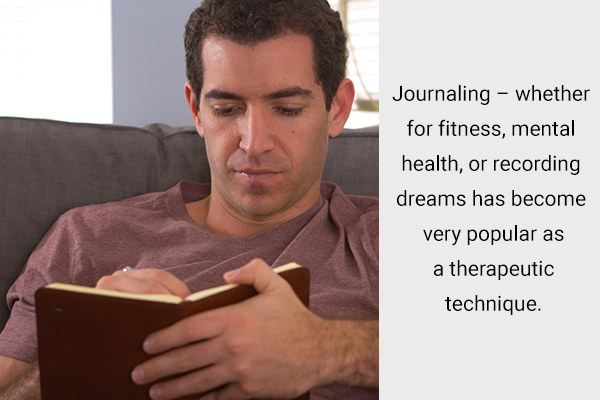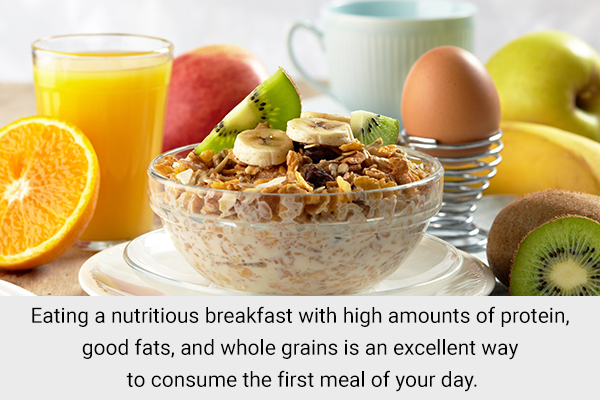In this article:
Recently, wherever you look, books, movies, articles, and Internet videos are talking about building healthy habits, especially in the morning.

There are many benefits to building habits and routines. It can help with reducing stress, fighting diseases, alleviating sadness, and so much more. (1)
Top Habits to Incorporate Into Your Morning
So, what practices and habits can you make part of your morning routine? Here are some evidence-based practices that may have a beneficial impact on your health and, ultimately, life.
1. Try to wake up naturally
The body runs on its own clock dictated by hormones and changes in the brain. This is called the circadian rhythm and is a response in the body due to external factors such as light and temperature. Any disruptions in these circadian rhythms have been found to cause mental health disorders. (2)
Alarm clocks may disrupt this circadian rhythm if your body hasn’t had enough sleep. In addition, the sound of alarms creates a stress response in the body, which is definitely not a good way to start the day. (3)
One way to avoid this stressful start to the morning is to plan your sleep in such a way that you get enough rest before it is time for you to wake. Once your body gets the sleep it needs, it will wake itself up, and over time, this mechanism will become a part of your circadian rhythm.
If you cannot do without alarms, then choose slow peaceful alarm melodies and keep a buffer time so you are not rushing to get up.
2. Make your bed

Making the bed is the simplest task you can begin your day with. Not only does it give you a sense of accomplishment right as the day begins, but according to wellness experts, it can also boost productivity and improve your sense of well-being throughout the day.
3. Try to meditate
Meditation offers many health benefits, ranging from physical to mental. Meditating even for a few minutes in the morning can improve stress, mood, memory, and attention throughout the day. (4)
You can either choose a quiet meditation to do yourself or make use of guided meditations through apps and videos.
4. Perform stretching exercises
Stretching exercises are very low impact and easy to perform. They have health benefits and are often performed before or after workouts to loosen muscles. (5)
During sleep, you may often turn into positions that may result in muscle stiffness or even cramps. It is a period of prolonged rest during which muscles are not used altogether. Stretching can help loosen these muscles and promote blood flow through them. (5)
Various stretching exercises are available based on age, presence of injury, and activities that you may choose to do.
5. Maintain a journal

Journaling – whether for fitness, mental health, or recording dreams – has become very popular as a therapeutic technique.
Spending a few minutes writing down your thoughts, tasks you have set out for the day, expressions of gratitude for your blessings, or dreams you had seen the night before can be a good way to start your day.
Several studies have reported an improvement in mental health, well-being, and physical functions of participants who practice journaling. (6)(7)
6. Get some sunshine
One of the most common reasons to make sure you get enough early morning sun is to boost your body’s vitamin D.
In a study done in a city in Saudi Arabia, the best time to take in natural sunlight is from 9 am to 10 am depending on the season. (8)
Additionally, sun exposure can also boost the production of serotonin in the skin, which is responsible for improving mood. (9)
7. Eat a healthy breakfast

Eating a nutritious breakfast with high amounts of protein, good fats, and whole grains is an excellent way to consume the first meal of your day.
Studies have suggested a healthy breakfast (with proteins, good fats, and whole grains) improves nutritional status throughout the day, reduces the risk of weight gain, and improves heart health. (10)
Breakfast consumption should therefore be emphasized in people of all ages.
Is It Better to Exercise in the Morning or Later in the Evening?
There is no real difference between morning and evening exercise. Depending on your personal preference, available time, and energy levels, you can choose one over the other. (11)
Final Word
Building healthy habits is a great idea in general. Experts believe wholesome routines and habits have beneficial results, both in health and mood.
Incorporating healthy habits as part of your morning routine can let you start your day on the right foot. Depending on your available time in the morning and preferences, you may customize practices that are the best for you.
- Was this article helpful?
- YES, THANKS!NOT REALLY


